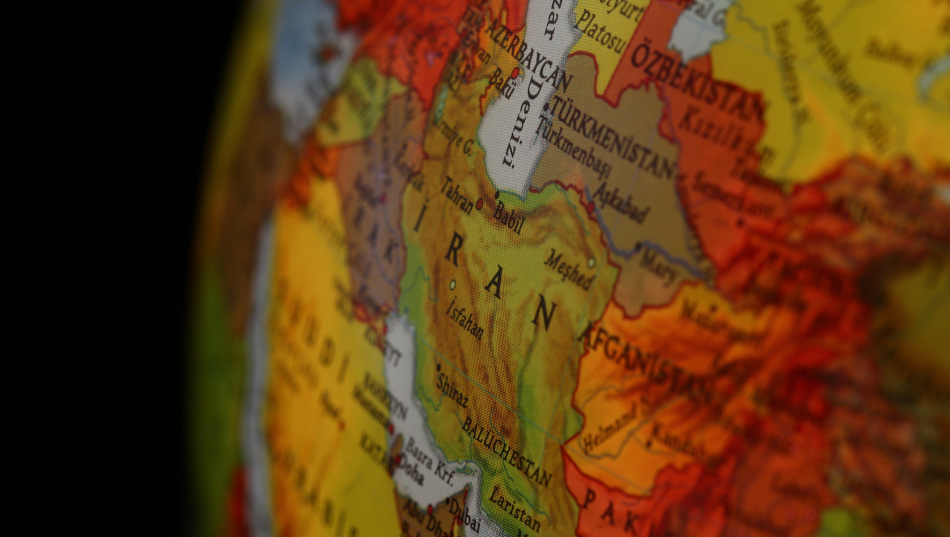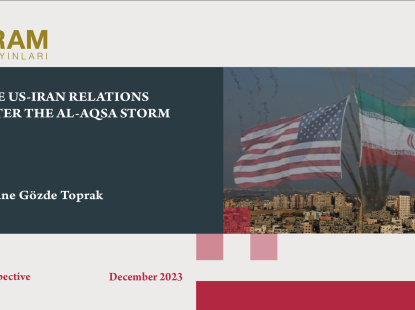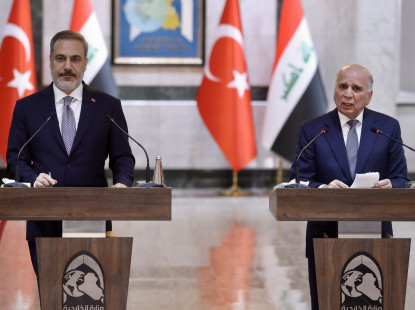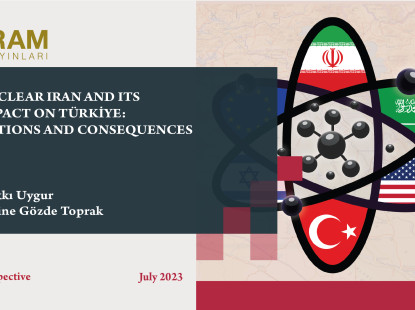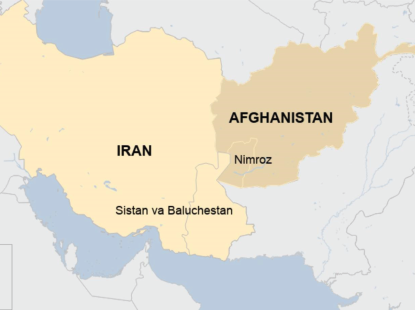For Iran, the situation in Palestine represents a chance to break free from its strategic fears that has persisted since 2020. Consequently, Iran aims to assert its own agenda in the region and further escalate the turmoil.
Palestine: Iran's Way Out of Strategic Fears
Since Hamas launched a coordinated surprise attack on Israel from the Gaza Strip on October 7, 2023, followed by Israeli bombardment of Gaza, the Middle East has been a prominent global concern. All countries in the region, particularly Turkey, have been closely monitoring the situation. However, Iran has been a distinct focus since Hamas' unexpected assaults.
Iran comes into focus primarily due to its association with Hamas within the framework of its Middle East strategy, known as the "axis of resistance." There is also speculation about whether Iran played a role in Hamas' recent attacks. Iran forged alliances in the Middle East after the 1979 Revolution, which gradually solidified throughout the 1990s and 2000s. This new axis comprised Lebanese Hezbollah, Syria, Hamas, various groups in Iraq, and the Houthis in Yemen. Notably, Hamas is Iran's only non-Shiite ally. This is significant because Iran, despite being called the Islamic Republic, follows the Shiite doctrine centered on the 12 Imams. Since its inception, Iran has aimed to influence regional states and essentially promote Shiite beliefs among Sunni populations. The Palestinian issue has been a key cover for this policy, which has caused concern in the Sunni Arab world. The designation of the military unit within the IRGC for foreign operations as the "Quds Force" is specifically pertinent to this underlying objective.
It would be an oversimplification to view Hamas solely as an organization led entirely by Iran. In fact, Hamas has taken steps to improve its relations with Gulf Arab states in the past year. In September 2022, Ismail Haniyeh, the head of Hamas' political bureau, stated that Hamas was working to enhance its ties with Saudi Arabia. However, he also mentioned that there were unspecified third parties attempting to hinder this progress. Similarly, on April 15, 2023, Hamas official Abu Merzouk made a similar statement. In essence, Hamas has shown discomfort with Iranian influence and is actively seeking to integrate into the Arab world. So why is there still intense debate about Hamas' claim of Iranian involvement in the Israeli attack and its aftermath? To answer this, we need to revisit 2020 and understand its significance for Iran.
In 2020, Iran faced significant challenges. Firstly, Qassem Soleimani, the commander of the IRGC's Quds Force, who had played a pivotal role in the Syrian Civil War, was killed on January 3, 2020 in Iraq on the orders of US President Donald Trump. Soleimani's death was a major setback for Iran, as he held great importance within the country and was even a topic of discussion for the 2021 presidential elections. The last event that shocked Iran in 2020 was Azerbaijan's operation in Nagorno-Karabakh on September 27, 2020, to liberate its territory under Armenian occupation and its complete victory. Iran's actions, such as supporting Armenia over Azerbaijan, despite its claims of Islamic leadership, and adopting extreme Persian nationalist rhetoric along with anti-Turkish stances, indicated a sense of strategic pressure. This context prompted Iran to concentrate on devising a fresh strategy from 2020 onward.
Indeed, the funeral of Qassem Soleimani provides insight into Iran's potential course of action. During her father's funeral, Zaynab Soleimani conveyed a powerful message. Zaynab Soleimani said, "My dear uncle Sayed Hassan Nasrallah (leader of the Lebanese Hezbollah) gave his message. Ismail Haniyeh (Head of the Hamas Political Bureau), Ziad al-Nahale (Secretary-General of the Palestinian Islamic Jihad movement), Bashar al-Assad (Syrian President), Hadi al-Amiri (Leader of the Badr Organisation in Iraq), Abdulmalik al-Houthi (Leader of the Houthis in Yemen), each one of them alone is enough to destroy the ones like you, like my father."
Zaynab Soleimani's words hold significance because they underscore Iran's approach to conflict. The brutal eight-year war with Iraq from 1980 to 1988 taught Iran a painful lesson: it should avoid direct-armed confrontations with other nations. Since then, Iran has favored achieving its objectives through proxy forces, sparing the lives of Iranian citizens and reducing the risk of conflict spilling over into its borders. This proxy-based security strategy has been particularly effective in countering perceived threats from Israel. Therefore, in response to the strategic pressure it felt in 2020, Iran has opted to reengage and strengthen its proxy forces to alleviate this sense of entrapment.
As of now, there is no concrete data available to confirm whether Iran orchestrated the Hamas attacks on October 7. However, Iran's actions following the attacks strongly suggest its involvement. The statements from various Iranian officials, including Supreme Leader Ali Khamenei, indicate Iran's intention to advance its own agenda through proxy forces aligned with the axis of resistance in the region, using Israel's Gaza operation as a justification. Consequently, Iran's focus does not seem to be on contributing to the essential peace-building process to alleviate the ongoing suffering of the Palestinians. Instead, Iran appears to view an escalation of chaos in the region as a potential way to alleviate its strategic fears. It is obvious that this approach is not in the best interest of the people in the region, especially the Palestinians.
